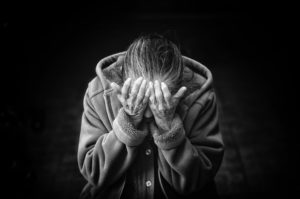by Jenny Rose | Aug 6, 2022 | Connection & Community, Emotional Intelligence
For part 1 of this post, please go here.
I’ve been exploring this quote from Priscilla Shirer:
“Unity does not mean sameness. It means oneness of purpose.
It’s interesting, how a one-line quote can trigger so much contemplation and so many questions.

Photo by Bewakoof.com Official on Unsplash
I’ve had two conversations with two different friends in the last week about how hopeless we feel to bring about positive change in the current political and social climate because people in general seem unable to unify and work together. A clear leader has not stepped forward. We are increasingly split into factions and too busy with in-groups and out-groups to step back and consider the whole picture.
This is not an accident. Unity is a distinct social advantage and a powerful strategy. It’s also apolitical, which is easy to see on the nightly news. Traditionally large groups are fragmenting into smaller and smaller units. Small groups, by means of forced teaming and other manipulations, are usurping power from established organizations. Current political leaders on both sides of the aisle are losing their followers. As traditional boundaries and frameworks dissolve, chaos and confusion sweep us into a new national and political reality, and it is not unity.
And then there’s capitalism. What we all have in common is an assault on our personhood, the subsummation of a human being into a cash commodity. In other words, how much money are we worth? Can we be manipulated into spending money or persuaded to prostitute for marketers and algorithms, politicians and bloated corporations?
Here, let me bend over and pick up that “free” soap for you.
For years, various people have told me I will never be “successful” if I don’t get on Facebook.
For years, I’ve resisted that assertion. Who made that rule? What is the evidence for that? Who benefits from me being on social media when it’s something I absolutely do not want to do?
I am fortunate to have a central pillar of support for my writing in a close relationship. That person is on FB and consistently, week after week, posts links to my work on his page. A couple of weeks ago, upon posting links to my latest Substack posts, FB threatened to suspend him. Why? Because the image that happened to be grabbed with one of those linked posts was a black and white picture of a nude pregnant woman. Nudity. Horrors. (You can go look at the pic here. Scroll down. You’ll know it when you see it.)
So, here’s the thing. An algorithm did that. It was instantaneous.
I’m not writing for algorithms. I’m writing for people.

Photo by freddie marriage on Unsplash
The hypocrisy staggers me. One can spread whatever mis- and disinformation one likes on FB’s platform. Stalkers and doxxers use it. Hate groups and insurrectionists plan to overthrow the government and kill people on it. Ideologues of all stripes churn out toxic poison on a daily basis. Bots and bad actors, both overseas and home grown, are free to roam, and every single keystroke users make is carefully recorded and mined so everyone can receive exactly the information they want to hear along with advertising they’re most likely to respond to.
The platform has grown and grown, become richer and richer, more and more influential, and less and less about connecting people on a healthy individual level. It’s now a sprawling, unmanageable mess. Users are leaving, and the company cannot adequately police and monitor itself or the activity taking place on the platform. So they look for ways to get even bigger and make more money (by making it more addictive and persuading the culture at large everyone needs an account to be “successful”) and write more algorithms to deal with “inappropriate” content (as defined by the company).
Nudity has been judged as inappropriate content, and because of an image grab over which neither the person posting nor I had any control (there were several other non-naked images in those posts), links to my content were deleted and suspension threatened.
That’ll teach us.
What it taught me is I’ve been right all along. Right to create my own blog and website. Right to find a platform like Substack that does not censor my work. Right to write for readers rather than clicks, stats, and algorithms.
My friend on FB has undoubtedly done much to get my work out there and find readers. No question about it, and I’m grateful every week for his efforts on my behalf.
On the other hand, if the price of “success” is participation on FB, it’s too high. I’m not interested. Not even a little bit. In fact, I feel vaguely I must be doing something absolutely right in order to be banned by an algorithm. I tried to squeeze out a tear of fear and self-pity, but I couldn’t manage it. There’s an ever-growing club of thoughtful, intelligent, science-based, talented people who have been suspended or banned (or both) from FB. I’d be proud to hang with them and I’m glad to read them elsewhere.
What does this have to do with unity? Well, FB was originally about connection, yes? First it was a dating hub. (All right, a getting laid hub. Whatever.) Then it was a way to maintain connections over long distance. Then it grew into a monster that presented every user with a way to maximize a “friends” list while allowing bullying, silencing, stalking, deplatforming, identity theft, hacking, and other behavior people feel they can get away with behind the privacy of their screen and keyboard.

Photo by Quino Al on Unsplash
Where is the unity now? What is our oneness of purpose? Oh, right. We’re unified in being income streams for FB. Lucky old FB.
FB lives because we animate it. Never forget that. We’re the ones who decide no one can be “successful” without it.
Oneness of purpose is a great phrase, but what does it really mean, and how do we get there? Is there any such thing as oneness of purpose anymore? Is our world too complicated for that? Can we come up with a simple overarching statement of purpose, or are we too tangled up in our ridiculous labels and ideologies, too distracted by our outrage and all the people wrong on FB and other social media, to raise our heads and look at the bigger picture?
Do we want our culture to be run by entities like FB that pay lip service to “friends” and “connection” but in actuality work to make money off discord, fear, and disconnection? Do we want our country to be run by authoritarians and corporations? What’s stronger, a handful of small sticks bound together or a handful of splinters? We the people are not powerful enough to make sweeping change individually. Our power, the power of democracy, is in unity of purpose. If we lose our ability and willingness to unify, we’re at the mercy of whatever bloated, narcissistic, moronic, power-mad, lying clown and his train of minions and hangers-on comes along.
And that’s worked out so well.
What I know is I’m writing for you, whoever you are, reading this page. I’m sitting in my green suede chaise with a cat above my right shoulder on the back, the blinds drawn against the heat, the laptop in my lap, writing for you. I’m not writing for FB or an algorithm. I’m not battering you with advertising. I’m not collecting your data. I’m not writing clickbait. I’m not thinking about success, beyond writing a good post, editing it, and publishing it today. Because that’s what I do on Saturdays. I’m not thinking about the money I’ll make, because all my content both here and on Substack is free at this point.
I have no interest in what you’re wearing, what color you are, to whom you pray, how you vote, if you’re vaccinated, what your biological sex or gender expression is. I don’t care where you live. I don’t care how much money you make or have. I don’t care who you love, but I hope one person you love is yourself. I don’t care how old you are, or what you eat, or what your health status is, or what language and culture you were born into.
If you’re reading this, I’m writing for you. If you find anything of value in my work, I’ve succeeded and we’ve made a connection.
There’s no need to hit a like button for an algorithm.
On the other hand, if you find an artistic black-and-white photograph of a nude pregnant woman offensive, you might appreciate FB’s censorship of “inappropriate” material, and you probably won’t enjoy my work.
And that’s okay, too. You won’t find me polluting the pages of Facebook with my obscene pornography.
Those of you who come to me through C. Leo’s Facebook page may want to consider subscribing directly through Harvesting Stones and/or Substack. I don’t know if he’ll continue to try to post links to me and risk suspension or not.
I’m going to continue to write what I write and use the images I like. I’ll let other people worry about whether I’m a “success” or not.
My oneness of purpose: To connect, to think critically, to explore, to question, to discuss, to create, to make a positive contribution.
What’s yours?

Photo by Morgan Sessions on Unsplash
by Jenny Rose | Jul 23, 2022 | Aging, Connection & Community, Emotional Intelligence
As I serial publish my Webbd Wheel series on Substack, I’m discovering some kindred spirits on the platform. Keri Mangis writes a newsletter called The Power Source, and she recently wrote a piece about being an outsider that caught my eye.

Photo by Joshua Rawson-Harris on Unsplash
I’ve written about the longing to belong previously. The desire to feel firmly anchored in family and community is an ache I’ve felt most of my life. Though I’ve belonged a few precious times in my life and I know what it feels like, I know more about what it doesn’t feel like.
Mangis suggests being an outsider is powerful because being an insider is so much work. We trim and prune and espalier ourselves to stay safe in our feeling of belonging. Humans are social animals. We’re neurobiologically wired to fear being outcast and alone.
Childhood is about learning roles, rules, familial and cultural norms, and, for most of us, under which specific conditions we can be loved and accepted and achieve belonging. Unconditional love is not our best thing.
By the time we’re young adults, we know what’s expected of us if we want to belong. The parts of us that don’t fit in are amputated or hidden, and we often live a double life, one secret and one playing to our audience, or we make ourselves into masks and shells, acceptable to our peers, families, and communities, but lacking authenticity or vitality.
Either choice is a lot of work. Making yourself small is exhausting. Ask any woman.
What we really want is for our real selves to belong, our honest, authentic selves, but few of us are lucky enough to find that easily, and the fear of being alone is huge.
We have a tendency to think of maturity as taking place in the first 20 years of life. By then we’re in our adult bodies and generally able to function on our own. We define ourselves as grownups, adults. We take on responsibilities, pursue education and interests, figure out the economics of independence. Some people form partner bonds and raise children. We’re busy in the world and much of that busyness has to do with belonging, taking care of social obligations, participating in production and consumption, and bumping up against limitations, rules, and taboos. We use our manners, follow traffic rules (sometimes), stand in lines, allow ourselves to be directed by signs, and generally follow the same standards of civility we learned in school.
We also subscribe to ideologies and resist change in the form of new information or critical thinking. We can’t endanger our places of belonging. Our identity depends on them.

Photo by Cristina Gottardi on Unsplash
In exchange, we are paid for our work, have friends, family, and community, wear our labels comfortably, and stay safe in the middle of the herd.
Then suddenly we’re old, negligible, invisible, and burdensome.
Then we die.
But what if the first 20 years are just the beginning? What if, as Mangis suggests, we embark on a new level of maturity in late middle age? What if that level requires we outgrow the need to belong and leave the longing for it behind?
I know from my study of power dynamics fear-driven choices indicate power loss. The fear of being outcast and alone is terrible, and so is the fact of it.
However, it is survivable, and it’s also a much, much easier way to live. The degree to which we’ve spent our first 50 years or so living underground or in the shadows is the degree to which our lives simplify if we decide belonging isn’t so important after all.
Suddenly, we can be as big, as expansive, as individual, as happy, as creative, as expressive, and as strong as we choose. We’ve spent 50 years learning about ourselves and the world. We’re no longer overwhelmed with the physiological needs of reproduction. If we give up our fears and struggles around belonging, what could we do with that energy? Belonging is expensive, and so is longing.
Perhaps mid-life crises are really just another growth spurt, a milestone to be celebrated and welcomed.
Instead of framing these years as the beginning of the end, perhaps we could look at them as the beginning of our most authentic years, the years in which we’re less concerned about how acceptable others find us, stop apologizing for who we are, and focus on reclaiming ourselves and belonging in our own skins.
At the end of the day, we belong only to ourselves. We’re not required to give up our power for transformation in order to belong to anyone else.
All we have to do is let go of our longing for belonging.

Photo by Mike Wilson on Unsplash
by Jenny Rose | Apr 23, 2022 | Emotional Intelligence, Feelings
All my life I’ve been told I overreact and I’m too dramatic, two labels which automatically invalidate my experience, feelings, and any attempt I make to communicate honestly.
Being told we’re overreacting is a sure way to shut us down, especially when we hear it regularly. It makes us question our own experience. It breaks connection and trust. It isolates us in shame.
It’s an insidious form of gaslighting.

Photo by Jonathan Crews on Unsplash
When I went through emotional intelligence coaching, I understood being told I’m dramatic is code for, “Your feelings make me uncomfortable.” It’s not a message about me at all, it’s a message about the person with whom I’m interacting.
As a child, I believed I exaggerated and I was too dramatic. I pushed my feelings down and hid them. I didn’t respond to my own distress. I didn’t ask for help. I trusted no one with my real emotions. I taught myself to become stoic and uncomplaining, to focus on the positive, to carry on no matter what.
My feelings became my enemies. I was deeply ashamed of them. They were bad and wrong and they hurt other people.
Now, decades later, I think a lot about feelings as I struggle with my re-triggered autoimmune disease. I know my current physical pain mirrors my emotional pain, which consists of passionate, intense feelings. Learning to manage those feelings more effectively is a work in progress. I do well with one at a time, but right now I’m overwhelmed with emotion. Emotional overwhelm is the trigger for physical pain. I keep right on keeping on through difficult feelings, but once the anguish is translated into back spasm, I can no longer hide or ignore my pain. Everyone else can see. Everyone else knows. I can’t hide my physical disability.
My body betrays me.
Horrors. I cringe, waiting to be told I’m too dramatic and I overreact. My feelings are wrong. They make others uncomfortable. They’re shameful, immature, crazy. I have nothing to complain about. Others have much harder lives than I do. It’s my business to support, not ask for support.
But my body tells the truth. Physically, everything hurts.
The truth beneath that truth is my heart hurts. I’m scared, I’m angry, I feel alone, I feel supported and horribly vulnerable, I’m excited about new beginnings, I feel guilty and ashamed about struggling, I feel relieved, and I don’t know how to bear my grief, both current and past. But I’m still too distant from my feeling experience to encompass all that, let alone manage it effectively.

Photo by Cristian Newman on Unsplash
So, back pain.
In the middle of this experience, I read an article by Courtney Carver from Be More With Less titled “5 Thoughtful Ways to Help You Underreact.” As you can imagine, it caught my eye.
Every day I think about this list of five strategies, and the difference between overreaction and feelings.
Overreaction is defined as a more emotional response than is warranted. Who decides what kind of an emotional response is warranted? Some people feel things very strongly and vividly; others do not. Certain events and situations trigger deep emotions for all of us. Do any of us have a right to judge another person as overreacting, especially when we can’t possibly know the entirety of their private emotional experience? Certainly, some people appear to overreact frequently, but do we stop to ask ourselves, or them, for more information? What is going on? What is behind the perceived overreaction? What need is crying out to be met? What are the feelings involved in the overreaction?
Feelings are value-neutral raw data we’re all biologically wired to experience. They’re simple. Mad. Sad. Glad. Scared. Ashamed.
We’re largely not in control of the complicated neurological and chemical experience of our feelings. We are able to control how we think about, express, and act out our feelings.
Thoughts and feelings are not the same thing.
I’m familiar with some of the strategies Carver writes about in her piece, but I’ve never seen such a concise and useful list of ways to manage habits of thought leading to “overreaction.”
It’s not our business to be concerned with onlookers who attempt to shut us down because of their own discomfort with feelings. Our business is learning how to refrain from shutting ourselves down or allowing anyone else to do so. Our business is taking care we don’t hurt ourselves as we feel our feelings.
Here’s Carver’s list:
- Do what you can. Let the rest go.
- Determine if any action or reaction is useful or effective in the first place. Does this deserve my time and energy?
- Don’t take anything personally.
- Distinguish between inside and outside. We can’t control what happens outside us. Our power lies within us.
- Closely related to the last strategy, if we feel we’re overreacting, what else is going on? Are we sick, hurt, dealing with unfinished feelings or unhealed wounds, struggling with addiction, lonely, tired, hungry? We need to focus on supporting ourselves.
Some people don’t want to deal with feelings, their own or anyone else’s. I understand. Such people will always struggle with someone like me, who feels deeply and expresses vividly. To them, I will always look as though I’m overreacting.
What overreacting means to me, though, is the intensity of my feelings is negatively affecting my health, and I need to find ways to support myself. I don’t want to feel less. I want to feel better.

Photo by Ben White on Unsplash
by Jenny Rose | Jan 29, 2022 | Connection & Community, Emotional Intelligence
I noticed a social pattern last week I’ve never seen clearly before.
I was involved in a situation at the pool facility where I work in which a distressed person (person #1) needed support. The situation did not arise in a private place, and there were onlookers. It continued for about 30 minutes, which is a long time when someone is visibly and audibly struggling with pain and grief.

Photo by Cristian Newman on Unsplash
The situation resolved, of course. We cannot fix the challenges and difficulties others face, but we can be with them while they feel their feelings and lend our strength, compassion, and energy until they can move forward. My team and I provided the needed support.
A few minutes later, a witness to the interaction (person #2) attempted to monopolize my attention and monologed about their pain, medical history, and personal difficulties.
I had completely different reactions to these two circumstances.
I have never known the first person to engage in attention-seeking behavior. On the contrary, in spite of significant disability person #1 is generally upbeat and determined, working very hard to gain strength and independence and supporting those around them who also face physical limitations and challenges. When things fell apart it was an anomaly, my empathy arose immediately, and I stepped in without hesitation or thought. I entered into their experience as fully as I could with nothing held back, completely focused on support.
In the second case, person #2 was no better or worse than usual, and is much more able than person #1 at baseline. While other witnesses had expressed compassion for person #1 (“that could be any one of us”), person #2 did not, but launched into a harrowing personal account that felt both competitive and demanding. I was wet (I’d gone into the pool in my clothes), cold, and emotionally worn out, as well as sad about the difficult experiences some people go through. I felt I was expected to supply more emotional energy, not as a temporary support on a bad day, but as a continuing source.
I silently declined, putting my empathy behind a boundary to rest and recover, and employed my usual level of compassionate listening. After a few minutes, I politely excused myself and moved away.
We’re all familiar with the adage about the squeaky wheel getting the grease. These interactions made me consider the failing wheels that do not squeak. Years ago, when I did fire and rescue work, I learned the loudest victim of an accident is probably not the most seriously injured. The person in hysterics clearly has an airway and a pulse. It’s the quiet victims one needs to assess first. This is true of drowning victims, as well. If a drowning victim is yelling for help, they’re in less immediate danger than the one sliding silently below the surface.

Photo by whoislimos on Unsplash
I’m one of the quiet ones. Stoic, mistrustful, often blaming myself for my own distress, I conceal it as best I can for as long as I can. I’m much better about asking for what I need than I used to be, thanks to my extraordinary group of friends, but I can relate to the one who is in deep emotional trouble and needing the most support and never asking for it. Pain and grief build up in the silence of our own heads and hearts. Our wordless anguish swells until it finds some kind of an outlet, and that outlet can be messy and humiliating.
I vividly remember being a school kid in a classroom. I was frequently bored. Some teachers allowed me to read or gave me extra credit or advanced assignments when I’d finished the assigned work, but some did not. I watched the clock while students who struggled with reading read aloud. I gritted my teeth. I daydreamed. I did my homework. I refrained from raising my hand, even though I generally knew the correct answer. I ignored the whispers about being a “goody-two-shoes” and a “teacher’s pet.” I continually defended against my neighbors trying to copy my work. I watched in resignation as the “squeaky wheels” acted out, floundered academically, and otherwise consumed all the teachers’ energy and attention. If allowed, I read a book. If not allowed, I read ahead in my textbooks. Anything to make the time go by. Of course, if I read ahead I only invited more boredom in the weeks ahead. My teachers said I was a “good kid,” I was a “pleasure to have in the classroom.”
I was not and am not a squeaky wheel. I was invisible. I could have learned so much more. I wanted to learn so much more. But there was no leftover grease. The squeakers and squealers got it all. Every day.
I know people who are comfortably well-off financially (comparatively) and are always talking about money, trying to make more money, dreaming what they would do with lots of money, blatantly pinching pennies to save money, gloating over the money they have, using their money to manipulate others. I know other people who are quite financially distressed and never complain. All their energy goes into working to earn more and doing without to spend less, but they don’t talk about it. If I didn’t know, I’d never know.

Photo by Cristian Newman on Unsplash
It’s an interesting social paradox that those among us who are most in need are sometimes the quietest about it, while attention seekers fight to remain center stage under the brightest spotlight. Yet the attention seekers frequently are the least able to utilize support and validation in such a way as to build self-reliance and independence. They crave the attention, but it doesn’t satisfy. They can’t use it effectively. It only feeds their hunger.
Others can transform with a little bit of care and attention. They use every kindness and expression of support to move forward and grow. They don’t want to be dependent on external attention.
We all need support sometimes. Any wheel can develop a squeak. Some people want support all the time and some wheels squeak continually no matter how much grease they get. As we make choices about investing our time and energy in our relationships, it’s important to know the difference.
by Jenny Rose | Jan 22, 2022 | A Flourishing Woman, Creativity
One of my greatest unconscious defaults in life is avoidance. I know now, thanks to Peter Walker and his work, avoidance is a natural trauma response.
Nothing makes me crazier than people who avoid unpleasant things.

Photo by Ian Espinosa on Unsplash
Is there a pattern here? (Laughter in the wings.)
I’m thinking about this because I’m steadily publishing my fiction in serial form on Substack, week by week, about 10 pages by 10 pages, and it’s a challenge.
Something in me wants to avoid revealing my own creativity. My writing takes me to some dark, and some people would say inappropriate, places. Every week (I just posted for the 8th week), I push myself through whatever the content of my post happens to be. More than that, I deliberately take it on in an accompanying essay.
I’m an expert in self-sabotage. I’ve been doing it my whole life, largely through simple avoidance. At the same time, it appears my previously intermittent and now increasing tendency to call a spade a spade and be honest about my experience is one of the characteristics others struggle with most when they deal with me.
It’s a strange paradox, and it creates ongoing internal tension.
The avoidant part of me is childish and disempowered. The direct, take-the-bull-by-the-horns part of me is powerful and hangs out with Baba Yaga.
I love the direct part of myself, but I don’t think anyone else can. I think others want the avoidant woman, because she’s so damn “nice.”
Ick.
When I first began writing creatively, I thought it would all be sweetness and light, love and romance, happily ever after.

Photo by Peter Forster on Unsplash
As the years passed, and I expanded out of (mostly bad) poetry, played with writing oral stories, and then started seriously writing fiction, my output took a darker turn. The sweetness and light included bitter and dark. The love and romance became raw sensuality and included detailed sexual content. I took old fairy tales, cleansed by the brothers Grimm and others, and excavated the darker, dirtier, more violent roots. My characters graphically tore out eyes and watched them change into marbles. They killed people. They ate people. Shapeshifters had sex. Towers fell. People went to war and practiced genocide.
My writing wasn’t dark on every page, but it wasn’t sweetness and light on every page, either. It made me cry. It made me cringe. It made me uncomfortable because of its emotional power. I wondered at myself. Yet never have I been so captured, so challenged, so confident, so happy as I am when writing.
After all, in those days almost nobody read it! I wrote for myself, and held nothing back.
Now I’ve deliberately changed that. Now anyone can read it. And some people are.
For a while I considered cutting the parts I judged as being too … what? Too honest? Too sexy? Too potentially offensive? Too violent? Too real?
Yes. All those things.
My impulse was to avoid revealing myself. Stay safely hidden. Stay small. Refrain from making myself or anyone else uncomfortable.
Even as I considered that, I knew I wouldn’t. I knew I couldn’t betray myself that way. If I’m to be judged as not good enough, I want the judgement based on the deepest, most complex, most powerful and honest work I’m capable of.
Because that’s the only way my writing is good enough for me.
My Substack post last week included explicit sexual content. There will be more, but that was the first. I wrote an essay to go with it titled “Creating the Webbd Wheel: Sex.” I’ve been worrying about that post for weeks. In the end, I kept it simple and direct. I was writing about sexual content. The title was clear. Why prevaricate?
Substack provides writers with statistics 24 hours after they post, and I was informed my essay got the most reads of anything I’ve posted so far.
I’ve been giggling ever since. So far, nobody’s given me a bad time about my sexual content, but even if they do, I know I was right in what I wrote in that essay. Nobody wants to talk about sex, and we all have a lot of judgement and fear around it, but that doesn’t mean it occupies none of our private attention. We can’t amputate ourselves from our sexual nature, no matter how much we wish we could or others tell us we should.
I will probably unconsciously default to avoidance for the rest of my life. It’s a deeply-rooted pattern. I’m socially rewarded for being “nice.” On the other hand, I personally value authenticity and honesty far more than I do niceness. I want to grow up to be direct and clear. Not mean, but not avoidant or arguing with what is, either. It’s a fine line, one I don’t walk steadily or gracefully.
But I’m not going to avoid the attempt.

Photo by Jon Flobrant on Unsplash














